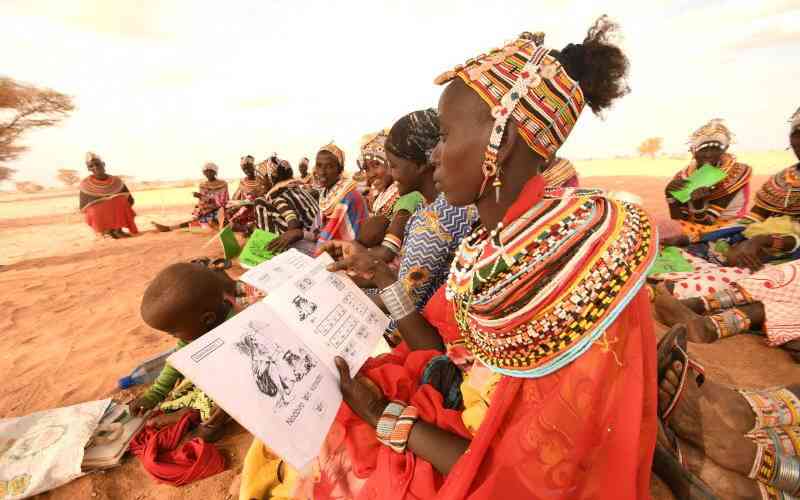×
The Standard e-Paper
Stay Informed, Even Offline

Learning is a journey of a thousand miles. A journey that begins with simple steps like learning vowels, alphabets, and even numbers. It may seem simple to those who began school while young, but to the Rendile women here in Korr, Marsabit, their quest to gain literacy, is a pursuit of a lifetime.
As the sun battles time to keep its rays on earth, the unconventional class is warming up at noon under an acacia tree that offers some respite from the scorching heat.